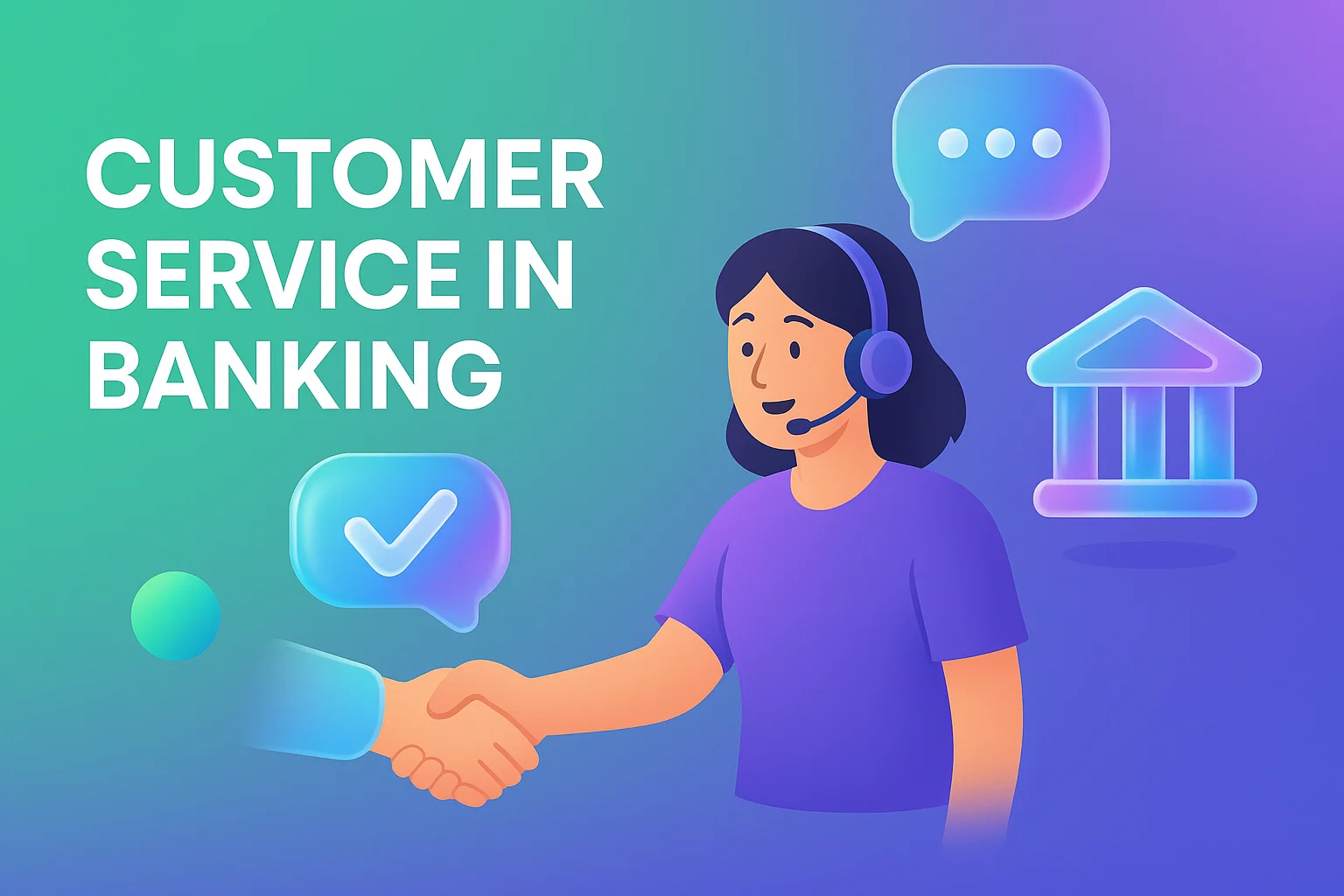Top 12 Customer Service Duties Explained
- June 6, 2025
- 9 mins read
- Listen

Handling customer service isn’t just about answering questions; it’s also about managing customer expectations, solving problems under pressure, and creating memorable experiences. Yet, many brands struggle with unclear role definitions, overloaded support agents, inconsistent service standards, and the pressure to meet rising customer expectations. Understanding the full scope of customer service duties is the first step toward solving these issues.
When roles are clearly defined and responsibilities are aligned with business goals, your teams work smarter. This blog can be your roadmap to that clarity. Whether you are building a support team from scratch or refining an existing one, this guide will help you break down essential customer service duties, set realistic expectations, and empower your team to deliver consistently excellent service.
12 Most Important Customer Service Duties & Responsibilities
The important customer service duties include replying to company queries, troubleshooting technical issues of customers, handling orders, and more. Here we have mentioned below the 12 major duties of customer service agents, ranging from the frontline and technical support representatives to the customer service managers of the company.
1. Responding to Product, Service, or Company Inquiries
One of the key responsibilities of a customer service agent is replying to all product or company-related questions. So, the agents have to be updated and knowledgeable enough before handling such queries.
Wrong information may lead to customer dissatisfaction and harm the company’s reputation. Knowing everything about the company and its services is crucial, but they have to master it.
2. Troubleshooting Technical Issues for Customers
For SaaS or tech organizations, resolving product-related issues, troubleshooting technical problems of customers, and offering technical assistance are some of the important duties of the help desk customer service team. It includes offering support for setting up, customization, upgradation, and maintenance of the service or product.
For such jobs, the team should possess deep knowledge of the product offerings and some hard skills.
Apart from assisting customers, many times, the help desk support representatives also closely work with the development team to ensure the optimization of service and improved user experience.
3. Handling Orders, Transactions, Returns & Cancellations
Handling all the orders and transactions is one of the most crucial responsibilities of a customer support executive. It also includes the cancellation of orders, returns, and product exchanges. They need to make sure that all the incoming orders and transactions are processed efficiently and on time.
Generally, an entry-level customer support agent handles all the order processing-related stuff.
4. Escalating Issues to the Right Teams
Customer support reps should not be expected to have all the answers, especially when it comes to complex or technical issues. In situations that fall outside their expertise, it’s their responsibility to escalate that specific issues to the appropriate internal teams.
Whether it’s a technical glitch, a billing concern, or a product-related question, a smooth escalation process ensures the issue reaches the right people and gets resolved promptly. The support agent here works as the bridge, keeping the customer informed with the latest updates while coordinating with internal experts to deliver a timely solution.
5. Sharing Information About New Products or Offers
Delivering information about the latest product offerings also comes under the umbrella of a customer service specialist. In some ways, they are also a part of the sales team, you can say.
However, their basic job is to help customers with issues related to your company, products, or services. They are responsible for offering a positive experience and getting you some satisfied and happy customers.
6. Offering Proactive Customer Support
“Always be proactive rather than reactive.”
This is the mantra that you should follow to make your customer service a great success. Customers nowadays want more personalized and proactive service from companies. So, those days are gone when support agents used to wait for customers to poke them whenever they needed some sort of assistance.
Proactive outreach has become a major responsibility of the support team. Now they are expected to reach the customers proactively and offer more personalized assistance.
Several customer support tools are available in the market that can help your support team initiate a conversation with customers proactively. REVE Chat is one of them. Its ‘Proactive Chat’ feature allows the support agent to offer instant assistance to the customers much before they even ask for it.
You can use the proactive approach in some of the below-mentioned scenarios:
- Informing your customers about the latest product launch or upgrades
- Asking for customer feedback
- Assisting customers on various social media channels
7. Dealing with Customer Complaints
Handling unhappy customers is one of the toughest duties of many of your customer service specialists. Basically, for the front-line support agents, being the first point of contact is a really critical job.
The customers are already angry, and some may shout at them madly. But agents should handle such situations tactfully for several reasons. One, once dissatisfied, chances are most of the customers will never come back to you for doing business. Secondly, it will hamper your company’s reputation.
Don’t forget, if customers can say good things about you, they can say the opposite, too. So, by any chance, they have to solve their issues as soon as possible.
To handle such situations, your customer service team needs to be trained in a varied range of customer service skills like how to be polite and soft-spoken, good listener, being patient, being empathetic, having good communication skills, staying calm, and so on.
8. Asking for Customer Feedback
Apart from assisting customers, getting feedback from them is also one of the important customer service duties. Collecting and analyzing customer feedback is necessary for your company, and there are several ways to automate the whole process. The customer service team can directly engage with the customers to get their feedback regarding the products, or during live chat sessions, they can ask customers to rate the service.
After collecting feedback, they need to analyze and take notes of the suggestions, if required, on what are the areas of further improvement. Your customer service team will work directly with the marketing team to analyze the feedback reports.
Learn more: How to Ask for Customer Feedback
9. Handing the Customer Reviews
Whenever we plan to buy something, we always search for online reviews to understand what other people think of that specific product or service. No doubt reviews influence the purchase decision. If we get some good reviews, we tend to think positively about that product.
Customers are also no exception. Customers use several platforms, like social media channels or various review websites, to give their views. Responding to those product reviews is very important and has become an important duty of customer service.
So, the support team should thank the customers for their good reviews and should take the negative reviews very seriously. They should contact the unhappy customers to understand what went wrong and try to resolve the issues as soon as possible.
Don’t forget that a large audience is watching the negative reviews, and it will not take much time to spread the bad words. Therefore, your support team should know how to handle unpleasant reviews and turn those into positive experiences.
10. Tracking Customer Service KPIs & Performance
Monitoring all the Key Performance Indicators (KPIs) and analytics is one of the most important customer service duties to discuss. Those KPIs consist of:
- NPS (Net Promoter score) to check how frequently customers are recommending your company or service to others. See how to improve your net promoter score.
- CSAT (Customer Satisfaction Score) to measure customer satisfaction.
- FCR (The First Contact Resolution Score) to measure the number of cases resolved at the very first attempt.
- ART (The Average Resolution Time) to observe how long, on average, the support agents take to solve the customer issues.
Apart from these metrics, several customer service solutions also provide information about your support representatives as well as the customers.
For example, as a live chat software, REVE Chat offers analytics and reports related to the support team, where we can get information like the total number of handled chats, missed chats, chat transfers, and offline messages, the login and logout times of agents to evaluate how they are performing.
Apart from that, REVE Chat also offers information about the customers who are on your website or mobile application, like their geographic locations, pages they are eyeing, used browsers, etc, to make your proactive chat invitations much more personalized.
11. Developing Well-Documented Knowledgebase
Because of handling customers regularly, the customer service team is one of the most knowledgeable teams in your company. They know the ins and outs of the organization. So, they can develop several useful documents for the customers. It may include installation manuals, FAQs, articles, blogs, troubleshooting documentaries, etc.
12. Managing Admin Tasks and Customer Records
Customer service isn’t only about handling phone calls and emails; it also involves handling a variety of administrative tasks that keep customer interactions running smoothly, such as managing customer records, responding to written correspondence, etc. As many businesses are gradually shifting toward digital operations, these tasks nowadays need to be handled by tech-savvy support agents who can confidently navigate various customer management systems (CMS) and digital databases.
So, familiarity with common office tools such as printers, scanners, or even the occasional fax machine ensures support reps are equipped to handle both traditional and tech-driven admin duties with ease.
Wrapping Up!
As you can see, customer service goes far beyond just replying to tickets or answering calls. It’s about being proactive, resolving technical hiccups, calming down angry customers, and even keeping track of internal KPIs. Each of these duties plays a part in shaping how customers perceive your brand, and more importantly, whether they’ll come back. When your team knows exactly what’s expected and has the right tools to support them, everything runs smoother, for you and your customers.
But here’s the thing: knowing what to do is just one side of the coin. The other side is execution, and that’s where many teams get stuck. If you’re wondering how to tie all these roles together, empower your agents, and still keep the experience seamless for customers, we’ve got something you’ll want to explore.
With REVE Chat, you can help your support team shine. Try it out yourself with a 14-day free trial and see how much of a difference it can make.
Frequently Asked Questions
First of all, A good customer service representative should be an excellent listener and communicator. He should possess the following key qualities:
Strong communication skills
Empathy
Adaptability
Positive attitude
Problem-solving abilities
Patience
Time management
Great product knowledge
The main duty of a customer support agent is to offer prompt assistance to the customers. His basic job responsibilities may include:
- Responding to customer inquiries
- Providing product information
- Maintaining records
- Resolving issues
- Processing orders
- Collecting customer feedback
- Following up
- Improving customer experience
Customer service representatives typically assist customers through phone, email, live chat, social media platforms, and in-person interactions, depending on the company’s available support channels
After each interaction, customer service representatives collect feedback from customers regarding the overall services and product offerings. This feedback is then shared with the relevant department to facilitate improvements and enhance future service quality.
Technology, such as CRM systems, live chat, chatbots, and ticketing platforms, helps customer support agents manage customer interactions, offer real-time assistance, track inquiries, automate repetitive tasks, and provide faster, more efficient service.



